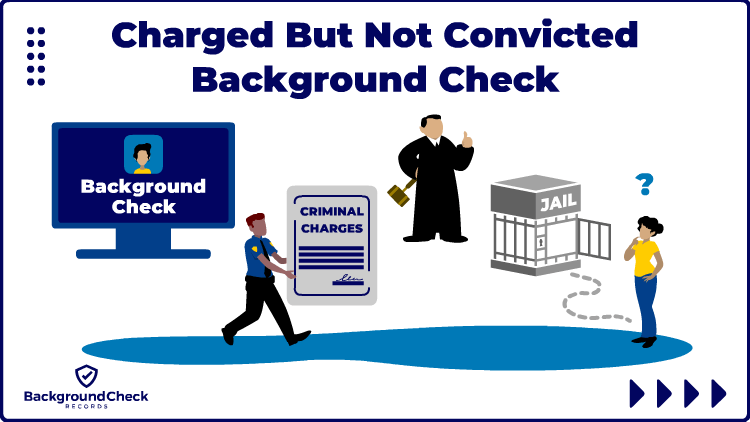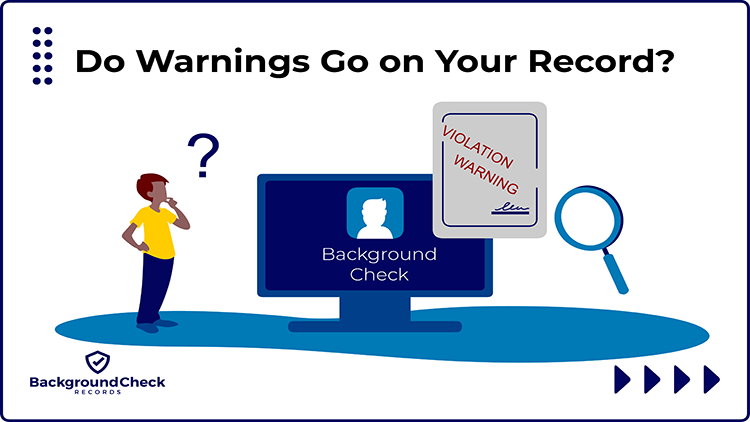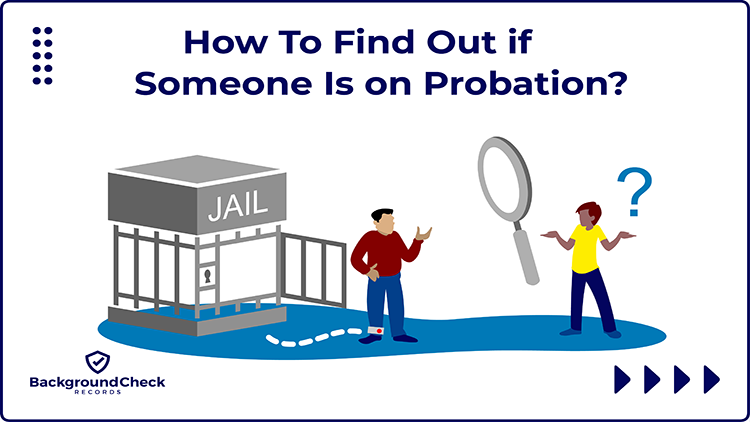Free Charged But Not Convicted Background Check (Not Just Felony)
When a person is charged but not convicted, background check information may reveal the person has had interactions with law enforcement, and this can impact their ability to get gainful employment or housing.
However, a free background check can reveal if all past offenses are showing as non convictions, not just felonies.
Therefore, it’s important to know how to run a personal free criminal background check to see what shows up and make sure non-convictions that shouldn’t be on the record appear.
Arrested But Not Convicted: How It Impacts Your Background Check
Even though one in three Americans has a criminal record and more than 10 million people annually, not every arrest leads to a charge or conviction but these arrests do have the potential to appear on a background check and can create negative impacts for the individual, even when charges are dismissed or the person is not convicted of a crime.1,2
Arrests are attached to pending criminal matters, which means they show up on a background check as a pending charge. Until the matter is completely resolved by the court, it will show the person must appear in court to answer a criminal complaint. When someone has been arrested but never convicted, the charge has the potential to show up on background checks as a non-conviction.
There are many different types of background checks. A personal background check can be conducted by the subject of the record to see what shows up on it. This allows the individual to prepare for potential negative impact, and can help them reach out to the proper agency when items are showing up that should have been removed such as non-convictions.
As seen below, states may have online portals or forms that people can use to request their own background check.
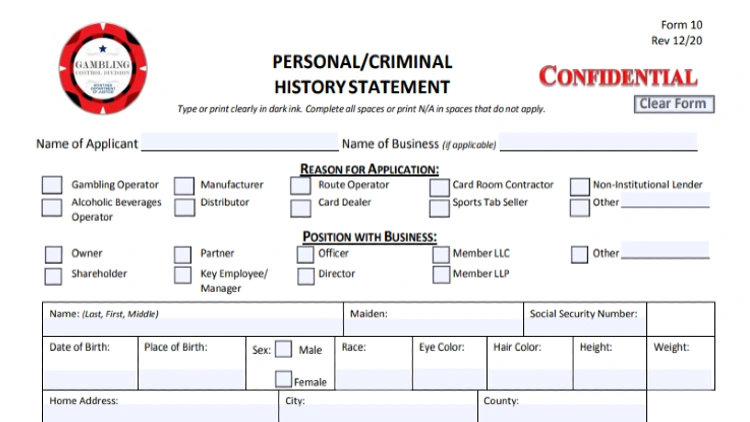
Level one background checks are usually name only or they only cover a small geographical area. These checks can show criminal history, but caution should be used when doing a name only check. Common names can return a number of hits so additional information would be needed to narrow it down to the correct person.
Level two background checks include fingerprinting and a national criminal history check. Since fingerprinting is typically done with an arrest, this type of background check has greater potential to show arrests and pending charges for every state in the country. Florida is the only state that requires a level two background check, but many other state or federal agencies and private businesses can opt to make this their standard.3
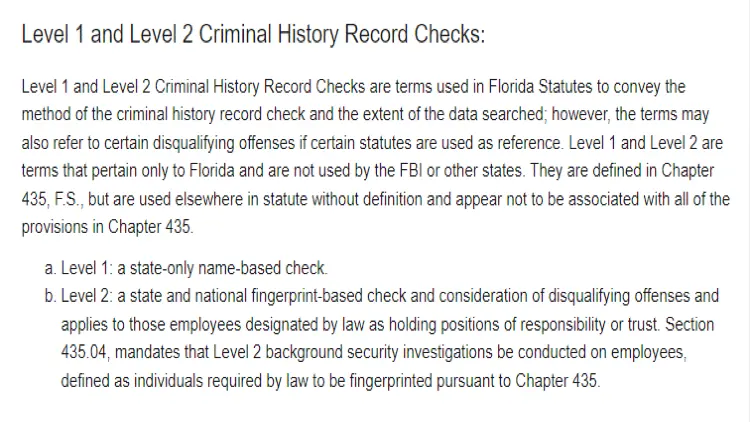
Positions that require security clearance have the potential to not only show arrests, those that ended with or without convictions, but may also reveal active warrants. Since this check can include interviewing individuals in addition to checking local, state, and national registries, uncovering arrests and warrants is more likely.4
While arrests are more likely to show up on background checks, warrants are not except for highly in-depth investigations. Arrests themselves appear as the charge that caused the order for arrest to be issued initially.
Do Charges Without Conviction Show Up on a Background Check? What Shows?
A background check for individuals who have faced charges but not been convicted can reveal whether a person was acquitted, had charges dropped, or if the case was dismissed, encompassing both felonies and misdemeanors. For example, charges that result in a deferred prosecution will show up on a background check as a pending charge until the conditions of the deferment have been met and the matter dismissed by the court.
Once the deferred conditions have been met, the charge will show up on a person’s record as a dismissed charge.
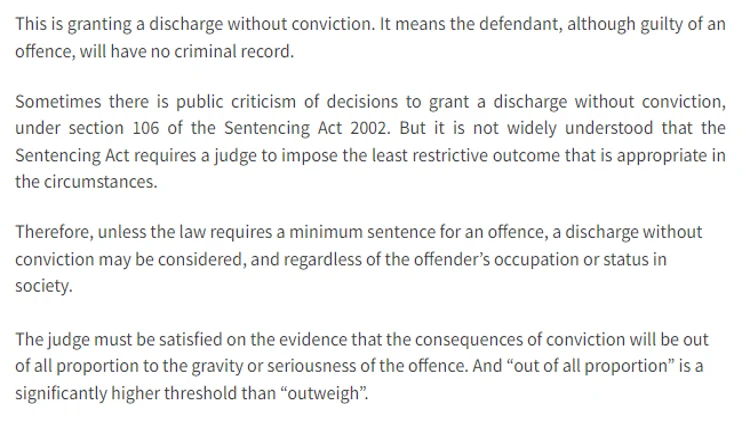
Charges that are dropped or dismissed may appear on specific background checks. However, the record will indicate that the charge was not pursued by the district attorney’s office. In states where non-convictions are not automatically expunged from public records, charges resulting in acquittal will reflect that the person was tried and found not guilty of the offense.
As mentioned earlier, various types of background checks disclose varying information regarding non-convictions. Another instance where such checks occur is when law enforcement conducts a background check following a traffic stop or any other interaction involving police and the public. Law enforcement will also be advised if someone has active warrants when they request a background check on someone they have pulled over or stopped.
Agencies such as Law enforcement can access the National Crime Information Center (NCIC) which shows all charges including pending charges, warrants, and disposed of matters. Law enforcement agencies can get instant feedback on requests to help them find out how often a person has been stopped by police and if they are wanted by law enforcement for other crimes.5
Ultimately, if someone is charged but not convicted, background check information will depend on the type of check being performed, the state the information was originally generated in, and the amount of digging the person conducting the check is willing to do, including state and federal charges.
Do Federal Charges Show Up On a Background Check If You Are Not Convicted?
Currently, the federal criminal justice courts have a very limited ability to expunge very narrow substance abuse crimes; however, non-convictions are not included in the federal code and will remain on a person’s permanent record.
18 US Code 3607 does allow for the expungement of low level substance abuse convictions for individuals younger than 25 years old, first time offenders, and the person successfully completes a pre-judgement diversion program. Once the program is completed, the judge enters a dismissal of the matter and the record can be expunged.6
Once the low level drug offense is expunged, it will not show up on a person’s record. Other non-convictions appear on background checks and remain on a person’s criminal record for any federal charges.
Charged But Not Convicted Background Check: Understanding Whether Arrests Appear
Once charges are dropped or the person is acquitted of the offense they are charged with, the arrest can appear on the background check, but only as the original charge, not as an arrest record. Arrests are tied to criminal charges which is why a background check alone may not reveal if a person was taken into custody. However, when someone was charged but not convicted, background check reports may show the charge information for all offenses, not just felony charges.
Because some crimes only require a criminal summons to be issued instead of an order to take someone into custody, the charge is what is listed on the official public record. Arrests can appear in news outlets or social media when a person is taken into custody for certain crimes. For example, if someone has been wanted by the police for a violent felony, when that person is taken into custody the matter may appear in local news headlines.
How Long Do Charges Without Conviction Remain On A Background Check in Each State?
The amount of time a charge without a conviction remains on a background check varies from state to state. Some states allow for immediate sealing or expunging of non-convictions, while others require a waiting period and petition to the court.
Some states have imposed restrictions on the timeframe that a charged but not convicted background check can examine, mirroring the seven-year limitation for credit reports as specified by the Fair Credit Reporting Act (FCRA).
The table below shows how long a charge without a conviction may stay on a person’s background history in each state.
| State Statutes |
How Long Misdemeanors May Stay on a Person’s Record When Result Is a Non-conviction |
How Long Felonies May Stay on a Person’s Record When Result Is a Non-conviction |
Statute of Limitations (Dropped Charges May Be Reinstated Within This Time Frame)*+7 |
Seven Year Lookback Period (Yes/No) |
| Alabama |
Indefinitely unless expunged or sealed |
Indefinitely unless expunged or sealed for non-violent felonies.
Indefinitely for violent felonies. |
Misdemeanor: 1 year
Felony: 30 days to no statute of limitations |
No |
| Alaska |
Indefinitely |
Indefinitely |
Misdemeanor: 5 years, Felony: 5 years to no statute of limitations |
No |
| Arizona |
Indefinitely unless expunged or sealed |
Indefinitely unless expunged or sealed for non-violent felonies.
Indefinitely for violent felonies. |
Misdemeanor: 6 months-1 year
Felony: 7 years to no statute of limitations |
No |
| Arkansas |
Indefinitely unless expunged or sealed |
Indefinitely unless expunged or sealed for non-violent felonies.
Indefinitely for violent felonies. |
Misdemeanor: 1 year, Felony: 3 years to no statute of limitations |
No |
| California |
Automatic relief |
Automatic relief |
Misdemeanor: 1-4 years, Felony: 3 years to no statute of limitations |
Yes |
| Colorado |
Indefinitely unless expunged or sealed |
Indefinitely unless expunged or sealed for non-violent felonies.
Indefinitely for violent felonies. |
Misdemeanor: 6-18 months, Felony 3 years to no statute of limitations |
Yes |
| Connecticut |
Automatic relief |
Automatic relief |
Misdemeanor: 1 year, Felony: 5 years to no statute of limitations |
No |
| Delaware |
Indefinitely unless expunged or sealed |
Indefinitely unless expunged or sealed for non-violent felonies.
Indefinitely for violent felonies. |
Misdemeanor 2-3 years; Felony: 3 years to no statute of limitations |
No |
| Florida |
Indefinitely unless expunged or sealed |
Indefinitely unless expunged or sealed for non-violent felonies.
Indefinitely for violent felonies. |
Misdemeanor: 1-2 years, Felony: 2 years to no statute of limitations |
No |
| Georgia |
Indefinitely unless expunged or sealed |
Indefinitely unless expunged or sealed for non-violent felonies.
Indefinitely for violent felonies. |
Misdemeanor: 2 years, Felony: 2 years to no statute of limitations |
No |
| Hawaii |
Indefinitely unless expunged or sealed |
Indefinitely unless expunged or sealed for non-violent felonies.
Indefinitely for violent felonies. |
Misdemeanor: 1-2 years, Felony: 2 years to no statute of limitations |
No |
| Idaho |
Indefinitely unless expunged or sealed |
Indefinitely unless expunged or sealed for non-violent felonies.
Indefinitely for violent felonies. |
Misdemeanor: 1 year, Felony: 3 years to no statute of limitations |
No |
| Illinois |
Indefinitely unless expunged or sealed |
Indefinitely unless expunged or sealed for non-violent felonies.
Indefinitely for violent felonies. |
Misdemeanor: 18 months, Felony: 3 years to no statute of limitations |
No |
| Indiana |
Indefinitely unless expunged or sealed |
Indefinitely unless expunged or sealed for non-violent felonies.
Indefinitely for violent felonies. |
Misdemeanor: 2 years, Felony: 1 years to no statute of limitations |
No |
| Iowa |
Indefinitely unless expunged or sealed |
Indefinitely unless expunged or sealed for non-violent felonies.
Indefinitely for violent felonies. |
Misdemeanor: 1-3 years, Felony: 3 years to no statute of limitations |
No |
| Kansas |
Indefinitely unless expunged or sealed |
Indefinitely unless expunged or sealed for non-violent felonies.
Indefinitely for violent felonies. |
Misdemeanor: 2 years, Felony: 5 years to no statute of limitations |
Yes |
| Kentucky |
Automatic relief |
Automatic relief |
Misdemeanor: 1 year, Felony: no statute of limitations |
No |
| Louisiana |
Indefinitely unless expunged or sealed |
Indefinitely unless expunged or sealed for non-violent felonies.
Indefinitely for violent felonies. |
Misdemeanor: 6 months-2 years, Felony: 4 years to no statute of limitations |
No |
| Maine |
Indefinitely unless expunged or sealed |
Indefinitely unless expunged or sealed for non-violent felonies.
Indefinitely for violent felonies. |
Misdemeanor: 3 years, Felony: 6 years to no statute of limitations |
No |
| Maryland |
Automatic relief |
Automatic relief |
Misdemeanor: 30 days to 3 years, Felony: 3 years to no statute of limitations |
Yes |
| Massachusetts |
Automatic relief |
Automatic relief |
Misdemeanor: 6 years, Felony: 6 years to no statute of limitations |
Yes |
| Michigan |
Automatic relief |
Automatic relief |
Misdemeanor: 6 years, Felony: 6 years to no statute of limitations |
No |
| Minnesota |
Indefinitely unless expunged or sealed |
Indefinitely unless expunged or sealed for non-violent felonies.
Indefinitely for violent felonies. |
Misdemeanor: 3 years, Felony: 3 years to no statute of limitations |
No |
| Mississippi |
Indefinitely unless expunged or sealed |
Indefinitely unless expunged or sealed for non-violent felonies.
Indefinitely for violent felonies. |
Misdemeanor: 2 years, Felony: 2 years to no statute of limitations |
No |
| Missouri |
Indefinitely unless expunged or sealed |
Indefinitely unless expunged or sealed for non-violent felonies.
Indefinitely for violent felonies. |
Misdemeanor: 6-12 months, Felony: 2 years to no statute of limitations |
No |
| Montana |
Indefinitely unless expunged or sealed |
Indefinitely unless expunged or sealed for non-violent felonies.
Indefinitely for violent felonies. |
Misdemeanor: 1 year, Felony: 1 year to no statute of limitations |
Yes |
| Nebraska |
Automatic relief |
Automatic relief |
Misdemeanor: 12-18 months, Felony: 7 years to no statute of limitations |
No |
| Nevada |
Indefinitely unless expunged or sealed |
Indefinitely unless expunged or sealed for non-violent felonies.
Indefinitely for violent felonies. |
Misdemeanor: 1-2 years, Felony: 4 years to no statute of limitations |
Yes |
| New Hampshire |
Automatic relief |
Automatic relief |
Misdemeanor: 3-12 months, Felony: 2 years to no statute of limitations |
Yes |
| New Jersey |
Automatic relief |
Automatic relief |
Misdemeanor: 1 year, Felony: 5 years to no statute of limitations |
No |
| New Mexico |
Indefinitely unless expunged or sealed |
Indefinitely unless expunged or sealed for non-violent felonies.
Indefinitely for violent felonies. |
Misdemeanor: 1-2 years, Felony: 3 years to no statute of limitations |
Yes |
| New York |
Automatic relief |
Automatic relief |
Misdemeanor: 2-3 years, Felony: 4 years to no statute of limitations |
Yes |
| North Carolina |
Automatic relief |
Automatic relief |
Misdemeanor: 2 years, Felony: no statute of limitations |
No |
| North Dakota |
Indefinitely unless expunged or sealed |
Indefinitely unless expunged or sealed for non-violent felonies.
Indefinitely for violent felonies. |
Misdemeanor: 2 years, Felony: 3 years to no statute of limitations |
No |
| Ohio |
Indefinitely unless expunged or sealed |
Indefinitely unless expunged or sealed for non-violent felonies.
Indefinitely for violent felonies. |
Misdemeanor: 6-24 months, Felony: 2 years to no statute of limitations |
No |
| Oklahoma |
Indefinitely unless expunged or sealed |
Indefinitely unless expunged or sealed for non-violent felonies.
Indefinitely for violent felonies. |
Misdemeanor: 3 years, Felony: 3 years to no statute of limitations |
No |
| Oregon |
Indefinitely unless expunged or sealed |
Indefinitely unless expunged or sealed for non-violent felonies.
Indefinitely for violent felonies. |
Misdemeanor: 4 years, Felony: 6 years to no statute of limitations |
No |
| Pennsylvania |
Automatic relief |
Automatic relief |
Misdemeanor: 30 days to 2 years, Felony: 2 years to no statute of limitations |
No |
| Rhode Island |
Indefinitely unless expunged or sealed |
Indefinitely unless expunged or sealed for non-violent felonies.
Indefinitely for violent felonies. |
Misdemeanor: 3 years, Felony: 3 years to no statute of limitations |
No |
| South Carolina |
Automatic relief |
Automatic relief |
South Carolina has no statute of limitations for any criminal offenses. |
No |
| South Dakota |
Indefinitely unless expunged or sealed |
Indefinitely unless expunged or sealed for non-violent felonies.
Indefinitely for violent felonies. |
Misdemeanor: 7years, Felony: 7 years to no statute of limitations |
No |
| Tennessee |
Indefinitely unless expunged or sealed |
Indefinitely unless expunged or sealed for non-violent felonies.
Indefinitely for violent felonies. |
Misdemeanor: 6-12 months, Felony: 3 years to no statute of limitations |
No |
| Texas |
Indefinitely unless expunged or sealed |
Indefinitely unless expunged or sealed for non-violent felonies.
Indefinitely for violent felonies. |
Misdemeanor: 2 years, Felony: 3 years to no statute of limitations |
Yes |
| Utah |
Automatic relief |
Automatic relief |
Misdemeanor: 1-2 years, Felony: 2 years to no statute of limitations |
No |
| Vermont |
Automatic relief |
Automatic relief |
Misdemeanor: 3 years, Felony: 6 years to no statute of limitations |
No |
| Virginia |
Automatic relief |
Automatic relief |
Misdemeanor: 1-5 years, Felony: 1 year to no statute of limitations |
No |
| Washington |
Indefinitely unless expunged or sealed |
Indefinitely unless expunged or sealed for non-violent felonies.
Indefinitely for violent felonies. |
Misdemeanor: 1-2 years, Felony: 10 years to no statute of limitations |
Yes |
| West Virginia |
Indefinitely unless expunged or sealed |
Indefinitely unless expunged or sealed for non-violent felonies.
Indefinitely for violent felonies. |
Misdemeanor: 1-3 years, Felony: no statute of limitations |
No |
| Wisconsin |
Indefinitely unless expunged or sealed |
Indefinitely unless expunged or sealed for non-violent felonies.
Indefinitely for violent felonies. |
Misdemeanor: 3 year, Felony: 6 years to no statute of limitations |
No |
| Wyoming |
Indefinitely unless expunged or sealed |
Indefinitely unless expunged or sealed for non-violent felonies.
Indefinitely for violent felonies. |
Wyoming has no statute of limitations for any criminal offenses. |
No |
*Felony charges such as murder or sex offenses typically are not subject to a statute of limitations and can be tried at any time during the defendants natural life.
+Dropped charges are not to be confused with dismissed charges. Dropped charges are typically handled before jeopardy attaches to a case, allowing the DA to reinstate the charge. Charges are typically dismissed after a hearing has started, and evidence does not support continuing the trial.
Distinguishing between charged and convicted is also important when reviewing criminal records and background check information.
Charged Vs Convicted on Background Checks & Criminal Records
There is a distinct difference between being charged vs convicted of a crime. Charges means a person has filed a complaint with law enforcement, law enforcement has completed an investigation and presented the matter to the district attorney (DA), and the DA has filed formal charges or obtained a true bill of indictment from the grand jury.
Put simply, this means there is enough probable cause to proceed to a trial.
Convicted means the person has either entered a plea of guilty or no contest or has been tried and found guilty and has been sentenced to punishment in court.
Both charges and convictions can go on a person’s permanent record showing the individual has been involved with the courts; however, permanent record and public background checks are vastly different. A background check focuses primarily on convictions and may not show charges (especially those that have been dismissed or resulted in an acquittal).
Charges that have been dismissed, dropped or the person was acquitted may be eligible for expungement, either automatically in the state where the matter originated, or following a petition to the court to seal or expunge the record.
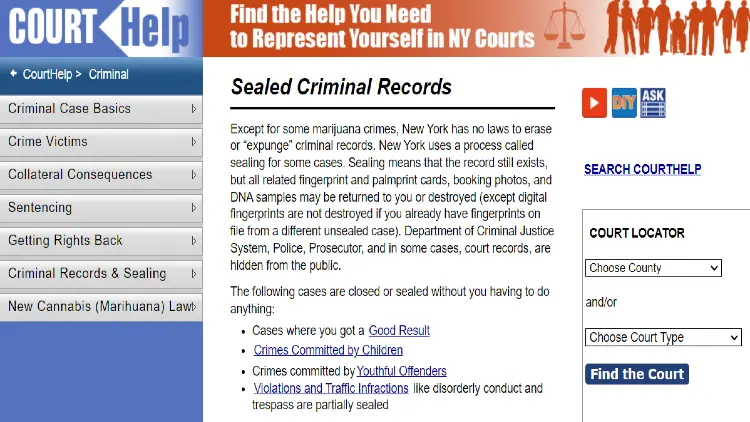
Sealed or expunged records may erase the matter from the permanent record completely, or it may simply severely limit who can access the full permanent record. There are many different kinds of criminal records.
Difference on What Shows on Criminal Records vs Background Checks
While many people focus primarily on what can show up on a background check, it is important to know that a background check is not as comprehensive as a person’s criminal record. Full criminal records are usually only accessible by law enforcement or other government agencies (such as courts or social service departments) with a need to know.
Criminal records can include sealed court documents, juvenile records and investigative notes that are not accessible to the public in a background check.
Additionally, warrants are considered part of the criminal record, but rarely show up on background checks until after the warrant has been executed. At that point, the criminal record will show a warrant was issued, but the background check will simply reveal the person has been charged with a criminal offense.
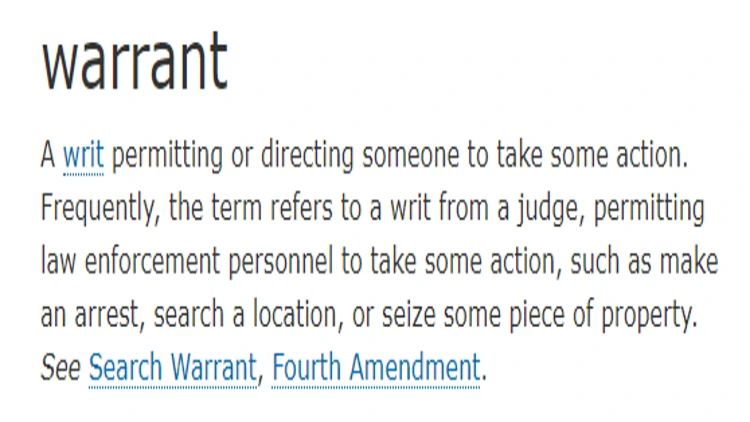
Laws in each state limit what part of the criminal record can be revealed on the public background checks. Federal guidance also outlines what potential employers and landlords can consider on background checks.
Understanding the Impact of Being Charged But Not Convicted on Your Record
When someone faces criminal charges, those charges typically appear on their criminal record, even if they don’t surface in a standard background check. This holds true unless the state automatically removes non-convictions from records or the individual successfully petitions the court for full expungement of the non-conviction.
Which non-convictions are automatically removed from a person’s record depends on the nature of the offense, the state in which the charges were filed, and whether the charges were dropped, dismissed or resulted in an acquittal.
Outcomes When Charged But Not Convicted of a Felony or Misdemeanor
When charged with a misdemeanor or felony, understanding the implications of a non-conviction on your record is crucial. Misdemeanor and felony non-convictions typically remain on one’s record indefinitely unless expunged through a petition or cleared automatically according to state laws.
The following states have automatic expungement or sealing from public view certain misdemeanor and non-violent felony non-convictions:
Misdemeanor charges are usually much less serious than felonies which is why there is generally broader relief available.
What Happens if You Are Charged With a Felony But Not Convicted?
Information on the duration of felony records shows that even if a felony results in a non-conviction, it can remain on a person’s criminal record indefinitely. Limited options for relief exist compared to misdemeanors.
The same states that have included mandatory relief for misdemeanor non-convictions also have that same relief for non-violent felony charges that result in a dismissal or acquittal or are dismissed following successful completion of a diversion program. These are:
In these states, criminal records will be sealed or expunged for non-violent felony offenses as long as there are no prior convictions or other disqualifiers. Public background check information should not reveal non-conviction felony charges in these states.
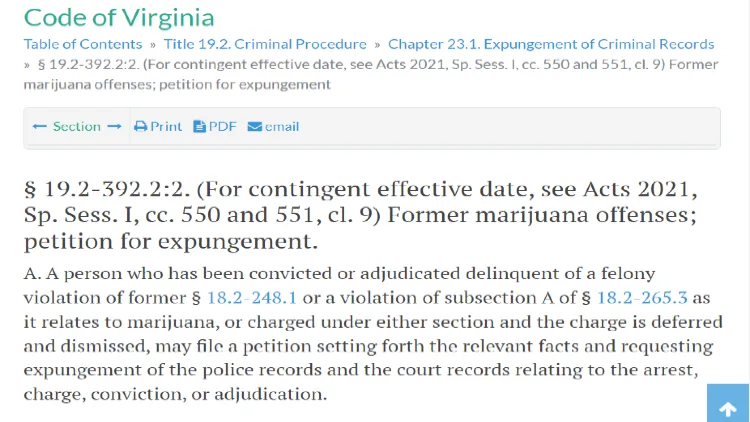
For felony and misdemeanor charges that result in a non-conviction but are not from a state with automatic relief, defendants can file a petition to the court and request the records be expunged or sealed, including successful completion of felony diversion programs. Currently, Alaska limits expungement or sealing of records to only those resulting from false allegation or mistaken identity, but it does prohibit releasing non-conviction records to the public. All other states that do not have mandatory relief codified do have petition-based relief written into code for non-convictions.
Guide To Conducting Background Checks for Individuals With Pending Charges
To ascertain the contents of a person’s record, one can conduct a charged but not convicted background check to uncover details concerning misdemeanor and felony cases where there were no convictions.
The subject can also request criminal history records from the courthouse in their area by completing a form or using the public terminal at the courthouse, through local law enforcement, or by using a third-party search site to see what the background check reveals.
Understanding what appears on a free background check for individuals who have been charged but not convicted can assist in anticipating potential negative consequences. It also notifies the individual if items that should have been expunged from public records are still visible.
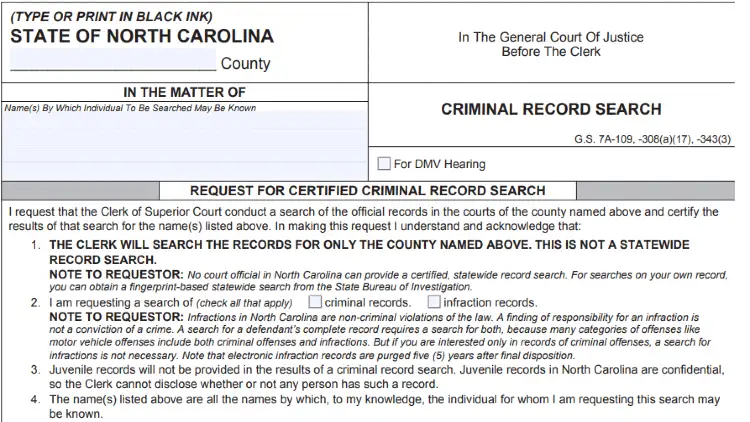
Local law enforcement would have incident information on file that can be accessed by the parties involved in the incident. This type of name-based search may be subject to certain limitations based on department policy.
A driving history check can be obtained through the state department of motor vehicles, made available to the subject of the record. This will list all motor vehicle violations including those that resulted in dismissal or a not-responsible finding in court.
A level one name-based search can be used to see if someone has a criminal record, but this type of search can return results on more than one person if the name is a common one. Name-based searches are also very limited in what they reveal.
Court records maintained by the clerk of court in the person’s city or town will also have information on charges, disposition of charges, and pending court hearings. Most clerk’s offices maintain a public terminal where records can be accessed for free. These terminals will not reveal records that have been sealed or expunged.
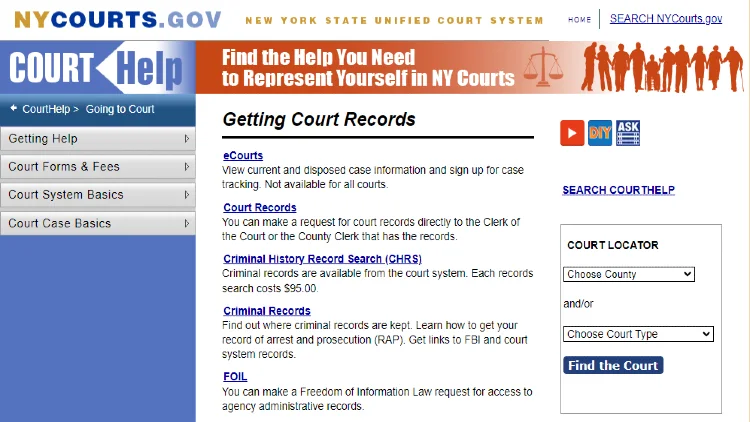
Criminal charges can have a major impact on a person’s life, from employment to licensure to volunteering or housing opportunities. That is why it is vital to know when charged but not convicted, background check information may reveal the person has been accused of committing a crime.
Frequently Asked Questions
Is a Charge Without Conviction Permanent on Your Record?
Unless the charges have been filed in a state that offers automatic relief for non-convictions, a charge can and will stay on a person’s permanent record until it is sealed or expunged, and in some jurisdictions, sealed records may be accessed by law enforcement or governmental agencies even when not accessible by the public.
Will an Arrest Without Conviction Appear on a Background Check?
If the non-conviction occurred in a state with automatic sealing or expungement of non-convictions it should not appear on a background check. If the charge was in a state without automatic relief, the defendant must petition the court to remove the non-conviction from public record.
1 Barriers to Work: People with Criminal Records. (2018, July 17). National Conference of State Legislatures. Retrieved October 15, 2022, from <https://www.ncsl.org/research/labor-and-employment/barriers-to-work-individuals-with-criminal-records.aspx>
2 Every Three Seconds – Every Three Seconds – Emerging Findings. (n.d.). Vera Institute of Justice. Retrieved October 15, 2022, from <https://www.vera.org/publications/arrest-trends-every-three-seconds-landing/arrest-trends-every-three-seconds/findings>
3 VECHS Definitions. (n.d.). Florida Department of Law Enforcement. Retrieved October 15, 2022, from <https://www.fdle.state.fl.us/Background-Checks/VECHS-FAQs/Definitions.aspx>
4 General Investigations and Clearance Processes. (n.d.). Defense Counterintelligence and Security Agency. Retrieved October 15, 2022, from <https://www.dcsa.mil/mc/pv/mbi/gicp/>
5 Pike, J., & Aftergood, S. (n.d.). National Crime Information Center (NCIC) – FBI Information Systems. Intelligence Resource Program. Retrieved October 15, 2022, from <https://irp.fas.org/agency/doj/fbi/is/ncic.htm>
6 Title 18-Crimes and Criminal Procedures. (2021, October 12) <https://www.govinfo.gov/content/pkg/USCODE-2020-title18/pdf/USCODE-2020-title18-partII-chap229-subchapA-sec3607.pdf>
7 Time Limits for Charges: State Criminal Statutes of Limitations. (2020, April 16). FindLaw. Retrieved October 15, 2022, from <https://www.findlaw.com/criminal/criminal-law-basics/time-limits-for-charges-state-criminal-statutes-of-limitations.html>

